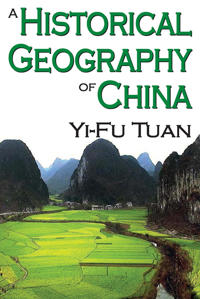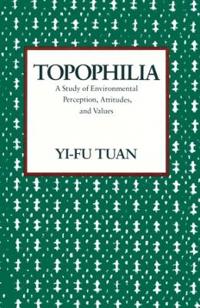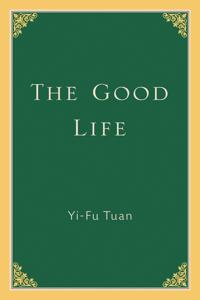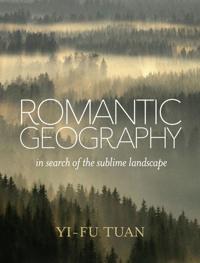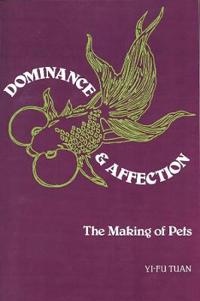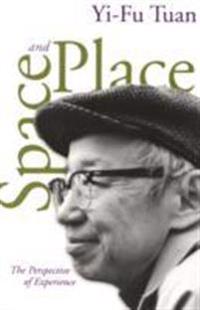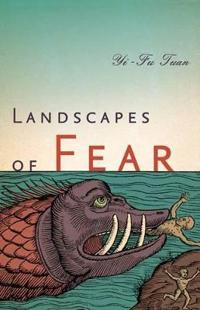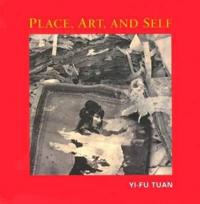A Historical Geography of China (Pocket)
avYi-Fu Tuan
ISBN: 9780202362007 - UTGIVEN: 2008-05The Chinese earth is pervasively humanized through long occupation. Signs of man's presence vary from the obvious to the extremely subtle. The building of roads, bridges, dams, and factories, and the consolidation of farm holdings alter the Chinese landscape and these alterations seem all the more c[...]
Topophilia (Häftad)
avYi-fu Tuan
ISBN: 9780231073950 - UTGIVEN: 199010What are the links between environment and world view? Topophilia, the affective bond between people and place, is the primary theme of this book that examines environmental perceptions and values at different levels: the species, the group, and the individual. Yi-Fu Tuan holds culture and environm[...]
The Good Life (Häftad)
avYi-fu Tuan
ISBN: 9780299105440 - UTGIVEN: 2003-02"[Tuan] explores answers to an old and unanswerable question: how should we live? . . . The Good Life is a little anthology of good feeling, touchstones of joy . . . These pleasures make the book a pleasure, not of conviction or belief, but of conversation's meandering exploration."--New York Times [...]
Romantic Geography (Inbunden)
avYi-Fu Tuan
ISBN: 9780299296803 - UTGIVEN: 2013-11Geography is useful, indeed necessary, to survival. Everyone must know where to find food, water, and a place of rest, and, in the modern world, all must make an effort to make the Earth--our home--habitable. But much present-day geography lacks drama, with its maps and statistics, descriptions and [...]
Dominance & Affection (Häftad)
avYi-fu Tuan
ISBN: 9780300102086 - UTGIVEN: 198410"(Tuan) does a masterful job exploring the condescending human treatment of animals as 'playthings' that exist only for our entertainment. He charts the malevolent history of male domination over women and children and the sad chronicle of slaves, dwarfs and other 'freaks' treated as human applianc[...]
Place, Art, And Self (Pocket)
avYi-Fu Tuan, Tammy Mercure, Jocelyn (PHT) Nevel
ISBN: 9781930066243 - UTGIVEN: 2004-09"What do place, art, and self have in common? To what extent do place and art define who we are?" In Place, Art, and Self, the renowned humanistic geographer Yi-Fu Tuan tackles this large question in a small, accessible, beautifully illustrated book. Through memoir and the insights gained from a per[...]

